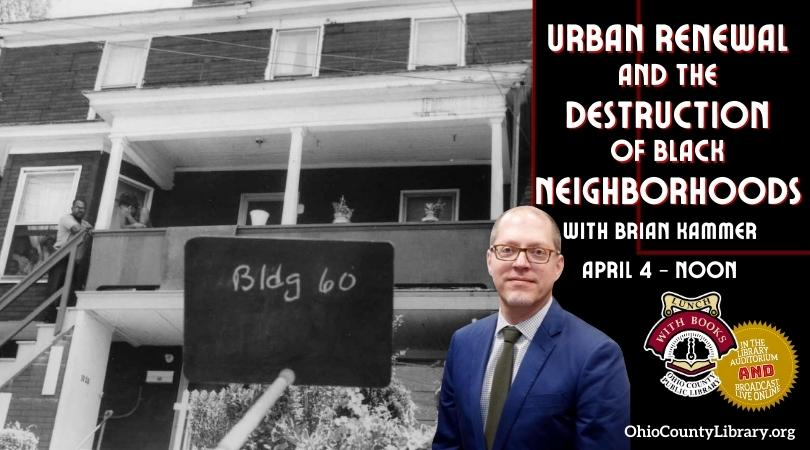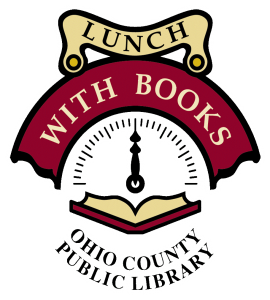


"Redlining, Urban Renewal, and the Systematic Destruction of Wheeling's Integrated and Black Neighborhoods"
In the 1930s, the federal government through the Federal Housing Authority designated almost all of downtown Wheeling a "hazardous" investment risk because of the presence of Black people and "foreign-born" European and Middle-Eastern immigrants. This was called "redlining" because the federal "risk security" maps colored these downtown zones red. These maps guided real estate investment in Wheeling and most American cities for decades afterward. Starved of investment credit, downtown housing stock declined over time, leading the city to declare large swaths of downtown "blighted" and therefore vulnerable to being seized under eminent domain. Black families and businesses were disproportionately affected by redlining policies that prevented them from purchasing or improving properties within the redlined areas, while at the same time also systematically preventing them from buying into non-redlined, all-white neighborhoods.
Beginning in the early 1960s, federally funded "urban renewal" projects in Wheeling resulted in the demolition of many homes and businesses, along with the displacement of many Black families particularly in Center Wheeling, then an ethnically and racially integrated part of the downtown area. Many of the displaced never returned to the city. Housing segregation increased as many Black families who stayed in the city relocated to the predominantly Black neighborhood in East Wheeling between 10th and 12th Streets, or into apartments in Lincoln Homes or Grandview Manor. Redlining policies and other exclusionary racist practices in the real estate industry forced Black families to crowd into this increasingly tightly circumscribed neighborhood, or to leave the city altogether to find affordable housing elsewhere.
In the early 1970s, a time of acute racial tensions in Wheeling, the city, via the Urban Renewal Authority and with federal backing, perpetrated another round of "renewal" as part of the ill-fated Ft. Henry Mall project by acquiring and ultimately leveling several city blocks worth of homes on Chapline, Eoff, Morrow, Palo Alto, High, Charles, and 12th Streets -- virtually the entirety of the vibrant Black community that had existed in East Wheeling since the late 1800s. The city promised to build alternative housing there, but city residents voted to abolish the Urban Renewal Authority before it could rebuild the vital neighborhood that was destroyed. Many displaced Black residents scattered to Ohio, Pennsylvania; some went to live in Lincoln Homes or Grandview Manor apartments, which were later themselves leveled, causing a new round of displacement.
Brian Kammer will discuss this history in detail with the aid of newly uncovered archival documents originating with Wheeling's defunct Urban Renewal Authority. He will argue that the evidence shows that racist federal and local policies around housing, real estate, and urban renewal systematically undermined and destroyed vibrant integrated and Black neighborhoods in Wheeling, and in so doing "paved" the way for the overall decline of our city during the 20th century.
In addition to being in-person in the Library auditorium, this program will be available to watch live on Facebook Live, on YouTube, and on the OCPL website's LWB Livestream page. Log into your Facebook or YouTube account during the program to leave questions for our presenters in the comments box. They will answer them during the live broadcast.
Tuesday | 2022 at noon
PRESENTER BIO: Brian Kammer grew up in Wheeling in the 1970s and 80s. He attended Wheeling Country Day School and Linsly School before leaving the state to attend college. He went on to become an attorney defending death-sentenced prisoners in Georgia for over two decades. That work necessarily involved investigating the histories of class and racial inequality in his clients' home communities. Brian never lost touch with his own hometown and retained a passionate interest in its history. In recent years he has used the investigative skills he honed in his work as a capital defense lawyer in the deep south to uncover and document the history of segregation and racial disenfranchisement in Wheeling, focusing on the effects of redlining and urban renewal.
FEATURED BOOK:
Subscribe to the Lunch With Books Youtube channel or like us on the Lunch With Books Facebook page or to receive notifications of our upcoming LWB broadcasts. To receive emails about our upcoming programs, visit our News page, click the "Subscribe" button to sign-up for our news blasts or download our free OCPL Connect app from your smartphone's app store.

"Lunch With Books" is the library’s flagship program for adult patrons. These lunchtime programs feature authors, poets, musicians, historians, and more every Tuesday at noon. Bring lunch (to the Library Auditorium or your computer), feed your brain!
© Copyright 2024 Ohio County Public Library. All Rights Reserved. Website design by TSG. Powered by SmartSite.biz.